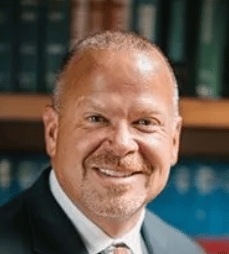 American society is rooted in law, order, and justice. Fortunately, there are procedures and rules in place in order to prevent and punish misconduct or errors made by prosecutors, judges, and others in the justice system. But what options do you have when these preventive measures and penalties do not work?
American society is rooted in law, order, and justice. Fortunately, there are procedures and rules in place in order to prevent and punish misconduct or errors made by prosecutors, judges, and others in the justice system. But what options do you have when these preventive measures and penalties do not work?
Research and studies done by organizations like the Innocence Project and ProPublica found that prosecutors nationwide rarely are held accountable for misconduct. This misconduct could be as simple as not sharing evidence in court. As a result, individuals are wrongfully convicted and sent to prison. These studies interviewed various experts and reviewed records from the past several years.
What they found, overwhelmingly, is that courts give prosecutors a free pass more often than not when it comes to misconduct – provided it even gets that far. The New York Times reported that “multiple studies over the past 50 years show that courts punished prosecutorial misconduct in less than 2% of cases where is occurred. And that rarely amounted to more than a slap on the wrist, such as making the prosecutor pay for the cost of the hearing.”
Examples of prosecutorial misconduct
What does “prosecutorial misconduct” mean, exactly? Generally, it occurs when the prosecutor takes “liberties” in building and/or presenting his or her case or hiding evidence from a defendant that shows that he or she did not commit the crime. The Center of Prosecutor Integrity lists these common examples:
- Charging a suspect with more offenses than is warranted
- Withholding or delaying the release of exculpatory evidence
- Deliberately mishandling, mistreating, or destroying evidence
- Allowing witnesses they know or should know are not truthful to testify
- Pressuring defense witnesses not to testify
- Relying on fraudulent forensic experts
- During plea negotiations, overstating the strength of the evidence
- Making statements to the media that are designed to arouse public indignation
- Making improper or misleading statements to the jury
- Failing to report prosecutor misconduct when it is discovered
It is important to note that a mistake is not necessarily misconduct. Everyone can make a mistake. What makes it misconduct is the intent to deceive.
Reason for studies on misconduct
These studies started gaining traction after the controversial Connick v. Thompson U.S. Supreme Court ruling in 2011. In this ruling, five of the nine justices voted to throw out the fourteen million dollars that a Louisiana state jury awarded to a wrongfully convicted New Orleans man who lost eighteen years of his life in prison. The five justices determined that although the prosecutor failed to share crucial evidence during the trial, the entire district attorney’s office could not be held responsible for a mistake made by a few employees.
As a result of this ruling, the U.S. Supreme Court declared that enough training and oversight in order to prevent prosecutorial misconduct exists, and individuals wrongfully convicted now have a harder time in remedying their situation. However, oversight authorities usually fail to fully punish prosecutorial misconduct and therefore help perpetuate it.
New preventive measures and penalties needed?
We understand that this is a delicate topic, but it is one that deserve attention. After all, when a criminal defense attorney makes a mistake, his or her client’s life could literally be on the line. The same can happen if there is misconduct on behalf of the prosecuting attorney. We respect the men and women who represent the state in a court of law; we just want to ensure that our clients are getting a fair shot.
If you have been wrongfully convicted and/or been the victim of judicial or prosecutorial misconduct in Tennessee, do not take on the criminal justice system alone. The best course of action is always to have a Sevierville criminal defense lawyer on your side to assist you. Please call Delius & McKenzie, PLLC at (865) 428-8780 or complete a contact form. We represent people in Gatlinburg, Seymour, Sevierville, Pigeon Forge, and the nearby regions.

Attorney Bryan E. Delius was born and raised in Sevier County, TN. He founded Delius & McKenzie more than 20 years ago, after receiving his JD from the University of Tennessee at Knoxville. He is admitted in Tennessee and in several federal court systems. Learn more about Bryan E. Delius.




